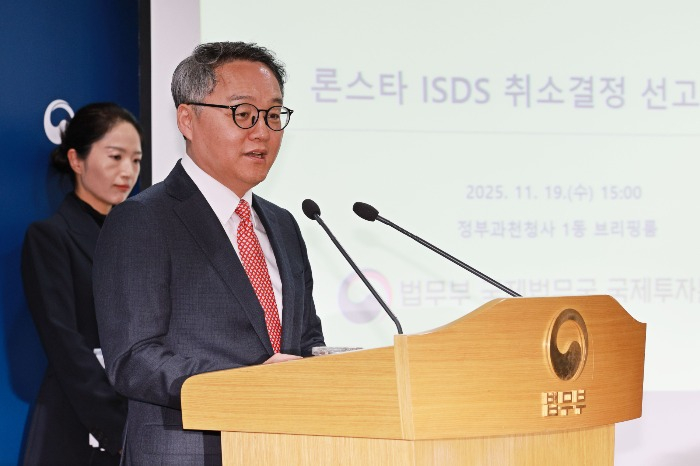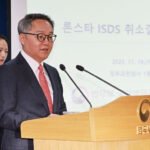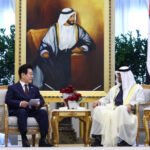
South Korea’s decisive victory in its long-running arbitration battle with Lone Star Funds was not the result of a single legal breakthrough or a late procedural surprise.
It was the product of two decades of institutional continuity, disciplined coordination across ministries and a legal strategy that never drifted, even as governments changed and hundreds of officials cycled through the case.
On Tuesday, an annulment committee at the International Centre for Settlement of Investment Disputes (ICSID) wiped out a 2022 ruling that had ordered Seoul to pay more than $230 million, including interest, to the US private equity firm.
The rare decision fully nullified the award, concluding one of the longest investor-state disputes in ICSID’s docket.
Out of more than 500 awards issued since 1972, only a handful, or 1.67%, have ever been annulled in full.
Behind that outcome sits a quieter story of methodical statecraft.
A CASE THAT OUTLASTS ADMINISTRATIONS, MINISTRIES AND PERSONNEL
The underlying dispute dates back to the early 2000s, shortly after Lone Star acquired Korea Exchange Bank (KEB), now Hana Bank.

Domestic criminal investigations into the US private equity firm’s alleged stock-price manipulation involving a KEB credit card subsidiary eventually produced guilty findings in Korean courts in 2011, judgments that later became a foundation of Seoul’s defense strategy.
In 2012, Lone Star filed an ISDS claim, or investor–state dispute settlement, which allows a foreign investor to challenge a host government in international arbitration rather than in the country’s own courts.
The firm sought $4.7 billion in damages, arguing that Korean regulators had improperly delayed approval of its planned sale of KEB to HSBC in 2007.
In response, Korea’s Office for Government Policy Coordination created a cross-ministerial task force, joined by the Ministry of Justice, Ministry of Strategy and Finance, Ministry of Foreign Affairs, the Financial Services Commission, the National Tax Service and other agencies to form a single unified team that would coordinate every legal and policy move.
Across five administrations and nearly 20 shifts in personnel, the task force never changed direction.
For an investor-state dispute spanning more than a decade, that level of internal consistency is highly atypical.
Korea stretched that discipline over two decades.
THE SAME COUNSEL TEAM STAYS FOR 13 YEARS
The Korean government’s selection of legal counsel also underlined the same long-term approach.

In 2012, the government appointed Bae, Kim & Lee LLC (BKL) as its lead Korean counsel and Arnold & Porter Kaye Scholer LLP for international representation – firms with deep experience in arbitration, financial regulation and investor-state litigation.
Within the Korean law firm, a specialized arbitration team handled the early phases of the case.
Several years later, some of those lawyers left the firm to establish the boutique firm Peter & Kim, now one of Asia’s most prominent arbitration practices, with Wolfgang Peter and his team from Peter & Partners.
Rather than restructure its legal team, the government retained the same individuals, preserving an unbroken chain of institutional memory.
BKL continued to work alongside the boutique team, with two of its senior lawyers overseeing the financial-regulatory aspects of the defense.
Their cooperation ensured continuity between the original BKL structure and the later Peter & Kim lineup, allowing the government to operate with a single cohesive legal bench for more than a decade.

That stability proved crucial. Over 13 years, counsel produced thousands of pages of submissions, reportedly enough to fill several truckloads. Both sides submitted more than 1,500 exhibits and nearly 100 witness and expert statements.
Across four rounds of hearings in Washington, D.C. and The Hague, the government’s legal posture remained meticulous, internally consistent and strategically grounded.
THE STRATEGIC TURNING POINT AND THE PATH TO ANNULMENT
At the center of Seoul’s legal strategy was Kim Kap-you (Kevin), founding partner at Peter & Kim, who represented the government throughout the 13-year arbitration.
He said the case ultimately turned on a single evidentiary issue.
“Excluding the ICC award from evidence was decisive in securing the win,” Kim said in an interview with the Korea Economic Daily on Wednesday.
The 2019 ruling, issued in a separate commercial arbitration between Lone Star and Hana Financial Group, contained language suggesting the Korean government’s actions could have influenced the KEB sale process.
Although Korea was not a party to that proceeding, the phrasing was favorable to Lone Star and, if admitted, could have shaped the tribunal’s view of causation.

Kim called it “virtually Lone Star’s only critical piece of evidence.”
The attempt to admit the ICC award became the fulcrum of the annulment.
Korea argued that because it had never participated in that arbitration, relying on the findings would violate basic principles of party equality and due process.
The annulment committee agreed. It held that the tribunal’s reliance on the ICC decision, created in a different case, among different parties, under different procedural safeguards, constituted a “serious departure from a fundamental rule of procedure.”
Under the ICSID Convention, that is one of the very few grounds for setting aside an award.
The committee’s conclusion resulted in the complete annulment of the 2022 decision, placing the Lone Star case among the exceptionally small number of ICSID awards ever fully voided.
A DELIBERATE DECISION: NO SETTLEMENT
Seoul’s refusal to settle was another notable feature. In 2020, Lone Star proposed a settlement reportedly close to $900 million.
After analyzing the evidentiary record and procedural risks, the government’s task force declined.
Even after the 2022 ruling ordered Korea to pay roughly $216 million, far below Lone Star’s $4.7 billion demand, the government immediately prepared for annulment.

When Lone Star filed its own annulment request, Seoul treated it as an opportunity to bring procedural defects before the committee.
LONE STAR SIGNALS A NEW LEGAL CHALLENGE
The annulment does not entirely close the door on further action. Shortly after yesterday’s decision, Lone Star signaled that it may consider new legal steps.
At a government briefing on Wednesday, Chung Hong-sik, deputy minister and director general for international legal affairs at the Ministry of Justice, said Lone Star could attempt a second arbitration, since a small portion of the original claims had not been barred by res judicata.
Jung stressed that any such effort would effectively restart the dispute.
“A completely new tribunal would need to be constituted, and Lone Star would have to bring forward new evidence,” he said. “The government will prepare thoroughly for that scenario.”
Officials also emphasized that the annulment ruling addressed only procedural violations, not the underlying allegation of regulatory interference in the KEB sale.
Prosecutor Yang Jun-yeol, who led the government’s legal team during the annulment process, explained, “Annulment procedures determine only whether grounds for annulment existed. They do not address whether the Financial Services Commission was substantively at fault.”















